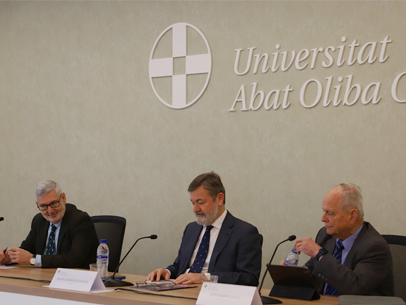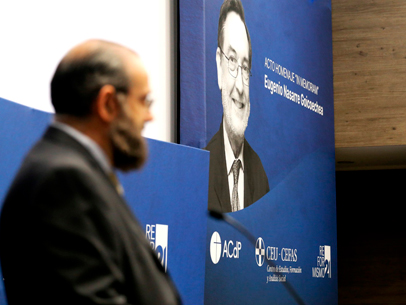Building the Latinoamerican alliance
CEU-CEFAS held the first meeting of Latinoamerican Think Tanks on March 18 to 21, title Tanks “Building the Ibero-American Alliance”. The meeting was organized together with the Buenos Aires Forum and which was attended by more than 20 European and Ibero-American institutions with the aim of strengthening relations, defending the values that unite us and proposing new initiatives.
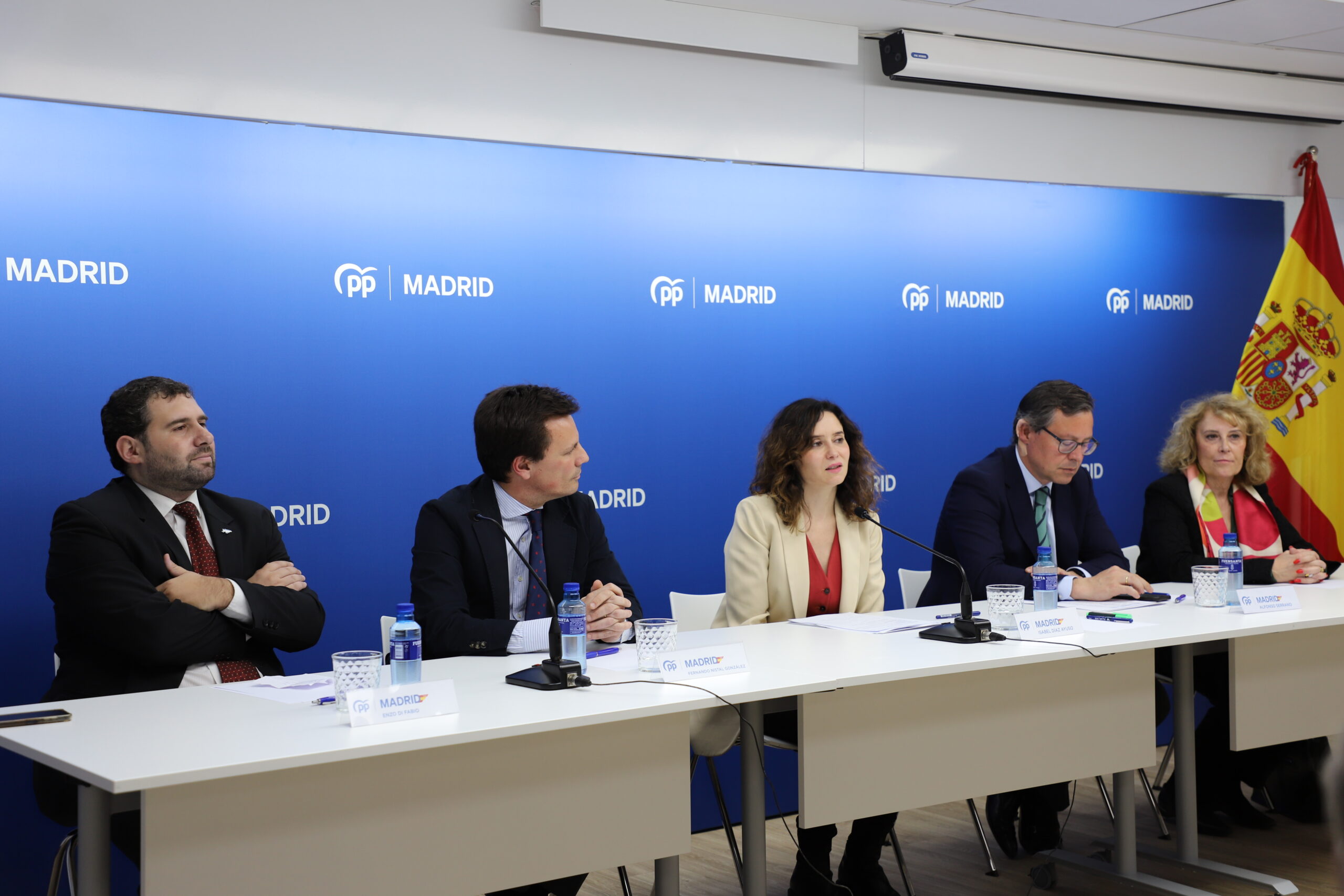
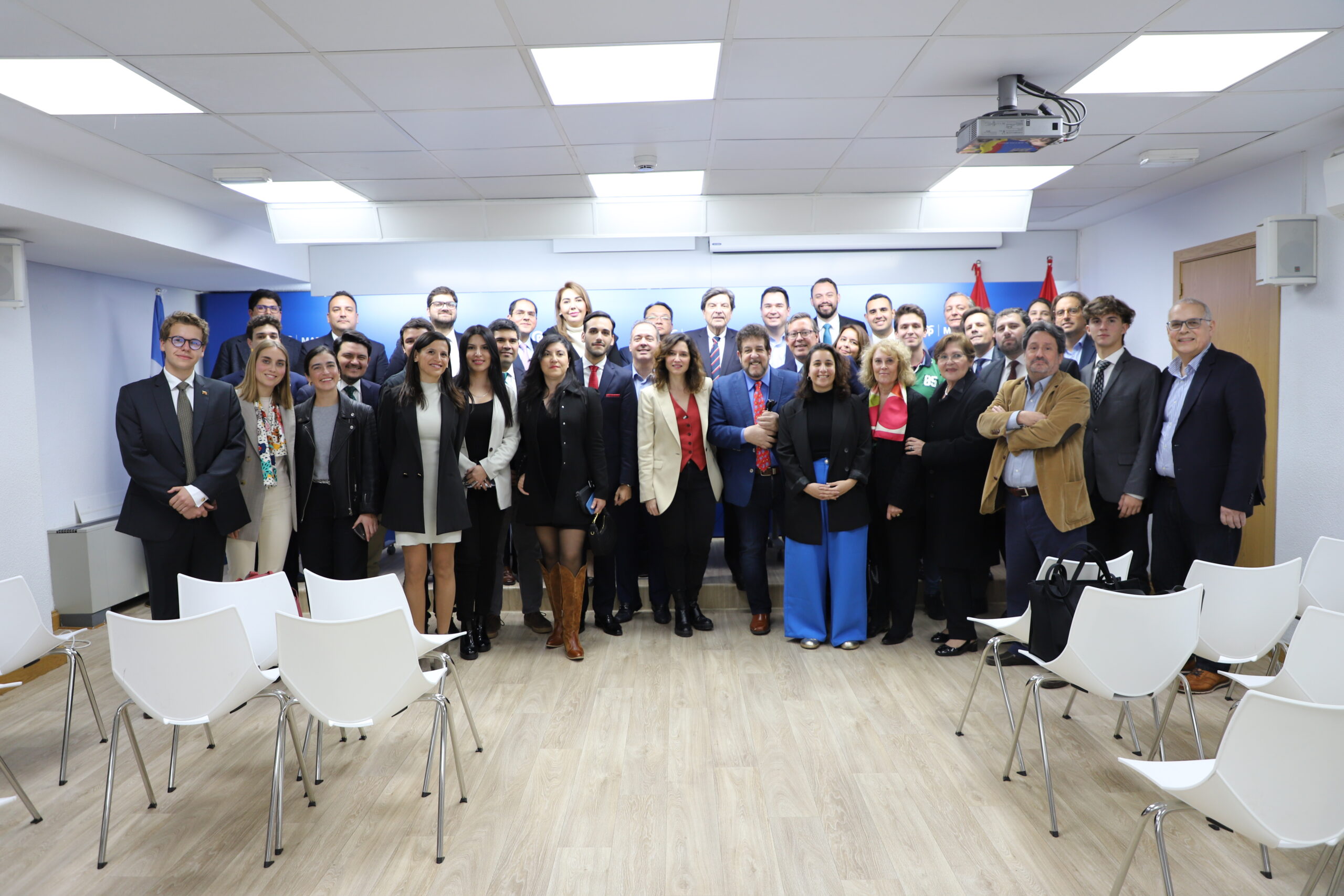
The first day, The Latinoamerican Allience was recieved by the President of the Community of Madrid, Isabel Díaz Ayuso and the General Secretary of the PP of the Community of Madrid, Alfonso Serrano. During her speech, the President emphasized the value of the links that unite Spain with Latin American countries and highlighted the Community of eas a region that welcomes all hispanoamericans and makes them feel “at home”.
The war culture
Miklos Lukacs, professor of Science, Technology and Innovation (Peru), made the inaugural conference “The importance of the cultural and anthropological battle in the world of ideas”. In his speech he pointed out that we are in a struggle for the human being because, in the name of progress, the most essential aspects of the human being are being attacked. Lukacs emphasized the existence of a technology that is much more disruptive and therefore it has repercussions on the way of living and interpreting politics.
The professor of Science, Technology and Innovation said that we are facing an anthropological threat that wants to change the conception of nature and the life of the human being. “The anthropological is at the heart of the debate,” said Lukacs and added that the human being is being redefined by progressive policies.
Finally, Lukacs pointed out that a debate about human nature and how it is understood in politics has been opened: “the philosophical debate is being rethought and now the decisions made in politics are understood as the correct interpretation of human nature”. Also he added that “the great debates of the 21st century will not necessarily be political, but anthropological, biological and philosophical”.
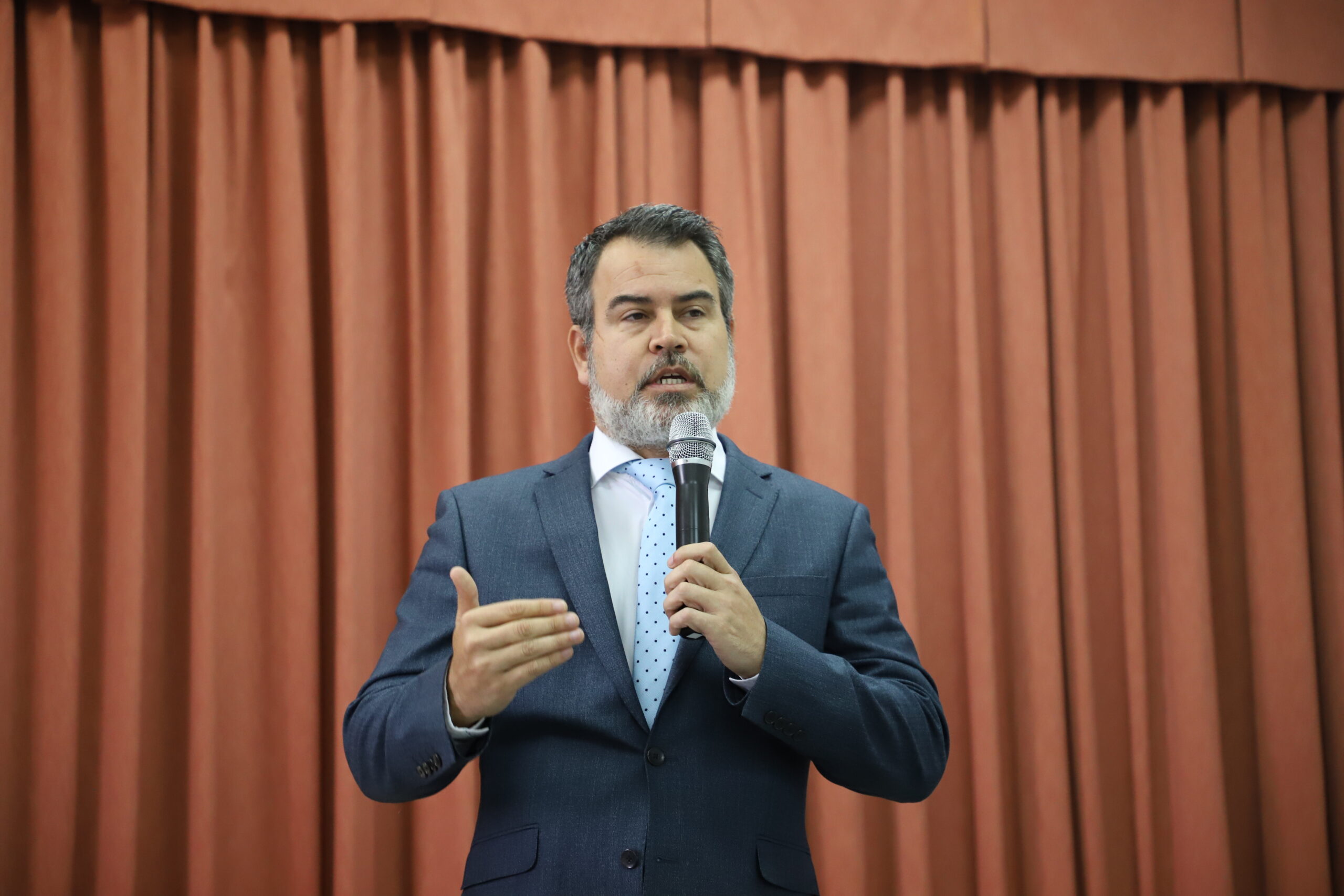
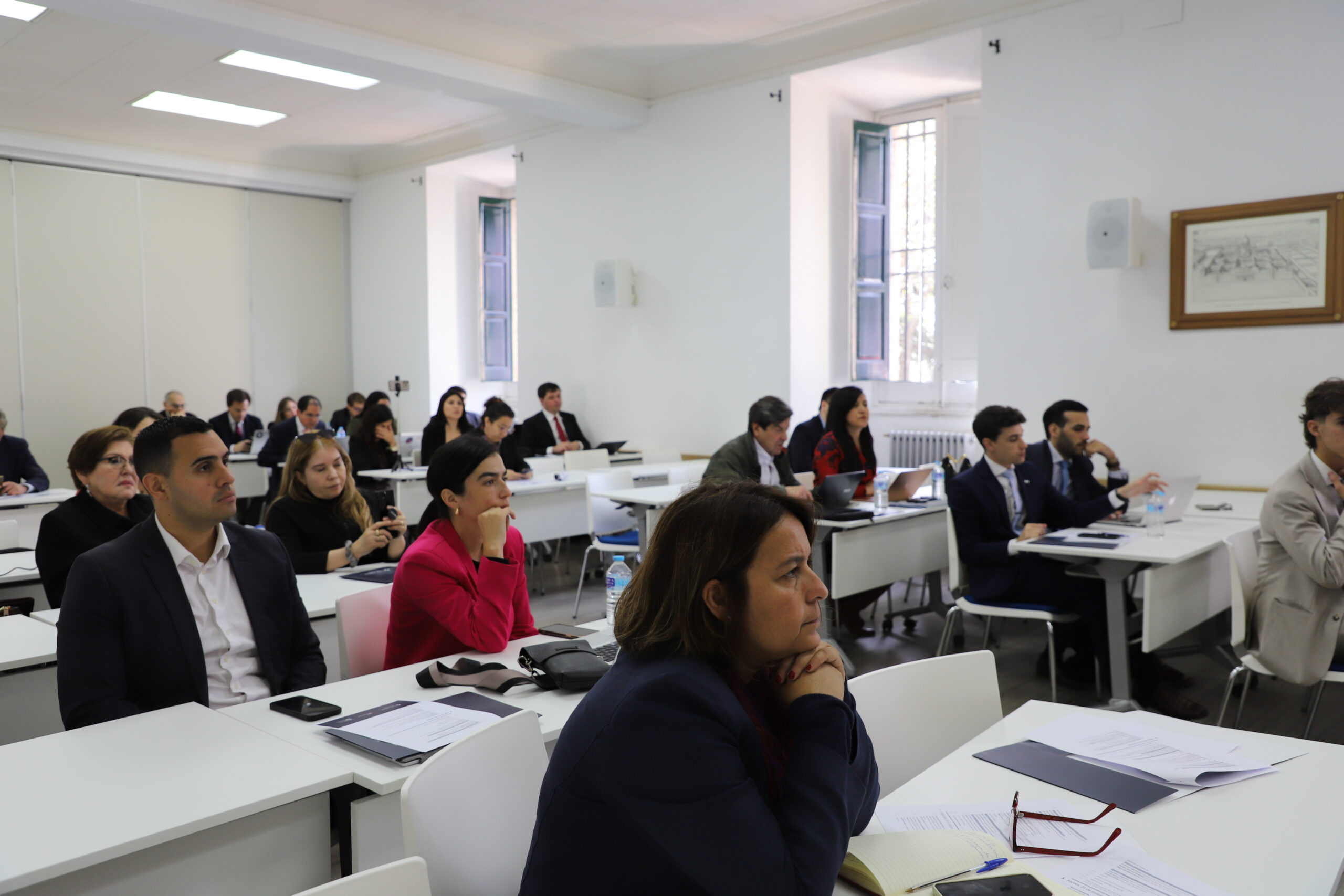
The deteroration of powers in Ibero-America
In the second session “The erosion of democracy and the separation of powers in Ibero-America”, the director of the Adam Smith Center (United States), Carlos Díaz-Rosillo, pointed out the role of the United States in promoting progressive ideas and how citizens are tired of this: “Americans are tired of the identitarian message of the left”. In this sense, he encouraged citizens to awaken their conscience and take action to place Ibero-American countries on the map of the United States and the world.
From his part, the former Vice-President of the Government of Colombia, Francisco Santos, said that the populism of the 21st century seeks to capture the institutions of the State to be able to act without obstacles: “they manipulate the media and capture the executive power with the aim of dissolving democracy”, said Santos. During the presentation, the coordinator of training and international relations of the Juan de Mariana Institute (Spain), Eduardo Fernández-Luiña, highlighted the crisis of confidence as the biggest problem in the Americas, reflected in political disaffection and discontent. “Many democratic systems are at a crossroads and recovering freedom and confidence in these countries is fundamental,” said Fernandez-Luiña.
Macarena Bravo, from the Republican Party of Chile and researcher at the New Voices Foundation (Chile), Macarena Bravo, defined the concept of democracy as “a means and not an end, which promotes the rule of law, individual guarantees, political freedom and the dignity of human beings”. In this sense, she highlighted the culture of cancellation and the threat to the rule of law as a trend that attacks and erodes democracy.
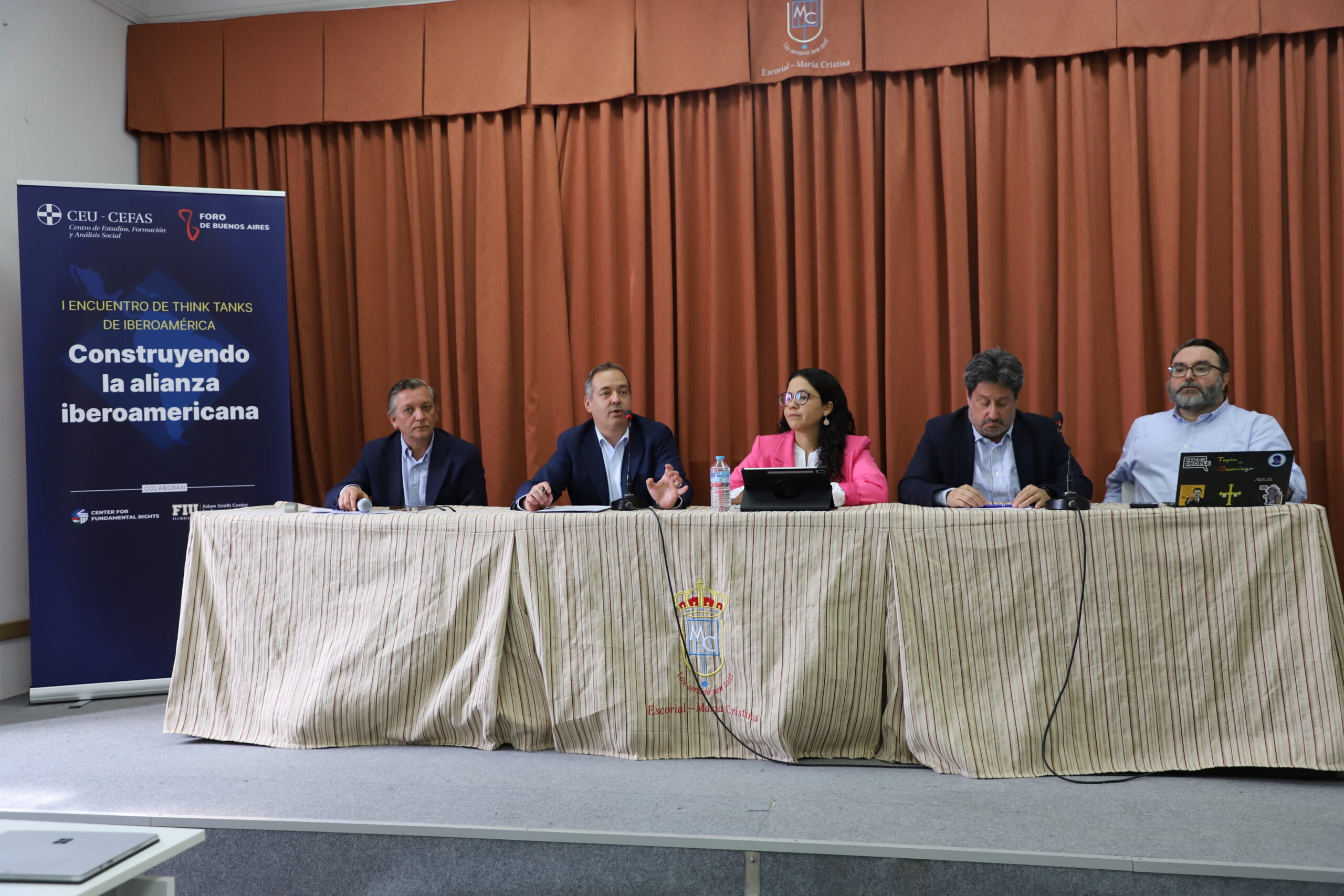
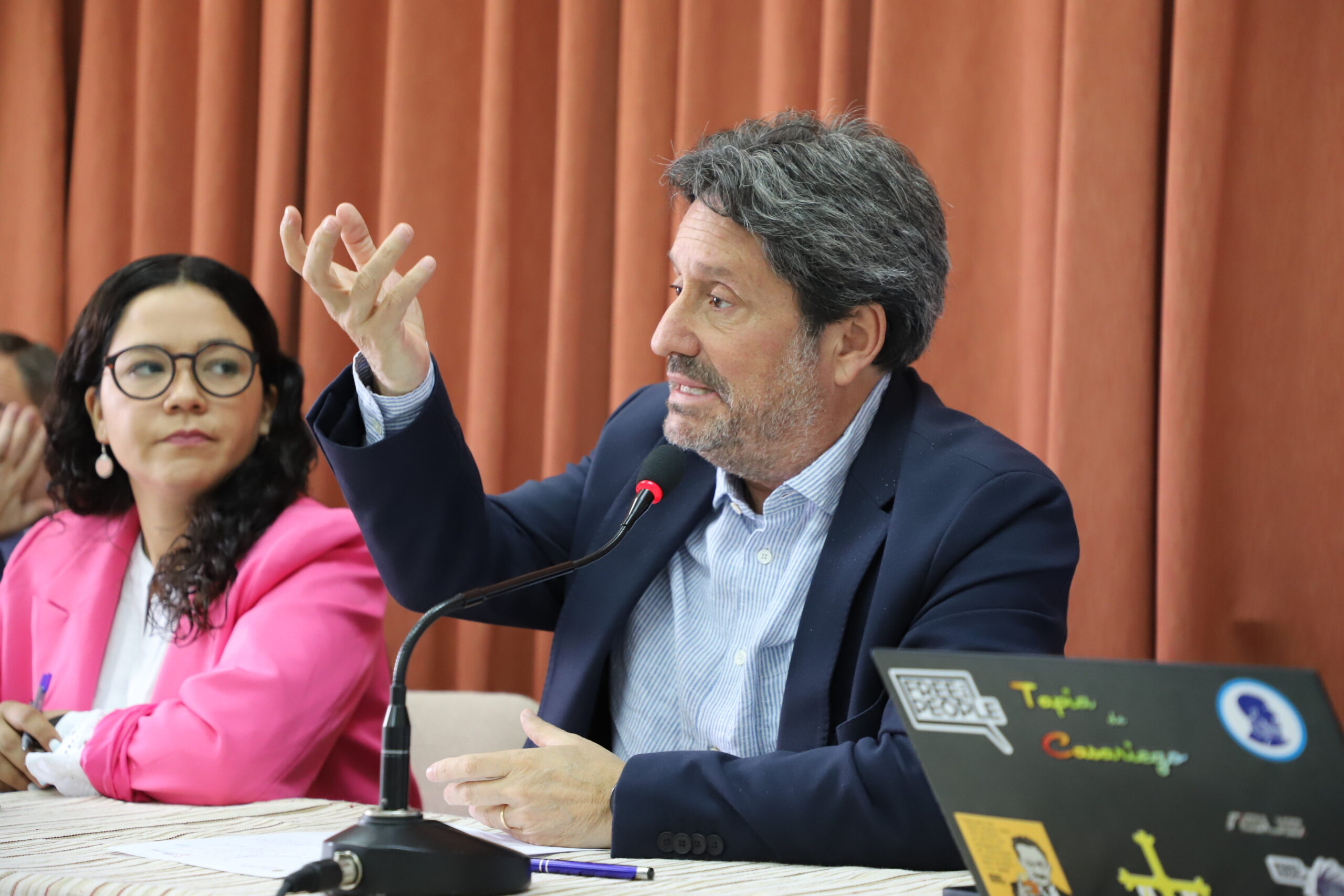
We then held two working groups: the first one with the participation of the founder of the Union of Democratic Organizations of America (Venezuela), Alejandro Peña Esclusa; the communications advisor of the Adam Smith Center (Cuba), Frank Zimmerman; and the director of Foro Madrid (Spain), Eduardo Cader, who addressed the dangers and threats of the Sao Paulo Forum and the Puebla Group.
During their speeches, they highlighted the continental threat post by Sao Paulo Forum and how the forom has based its discourse on the war culture and Wokism, seeking to adopt these progressive ideas and implement them in the Latinoamerican govverments. The result of this influence, as has been exposed, is a “red tide” that has impacted several Latin American countries. Faced with this situation, the Madrid Forum, an alternative to these movements, has been created to fight against progressivism and organized crime.
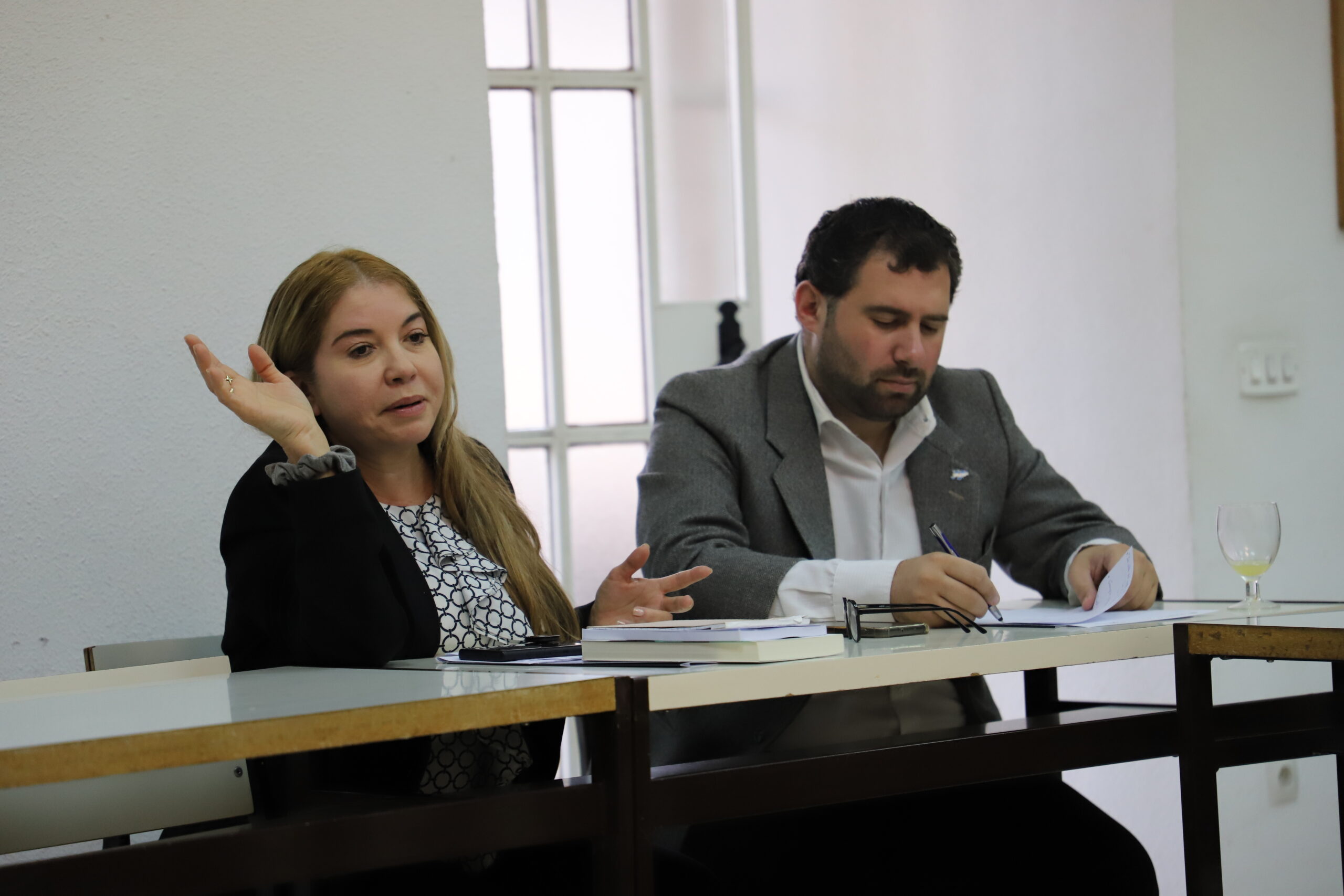
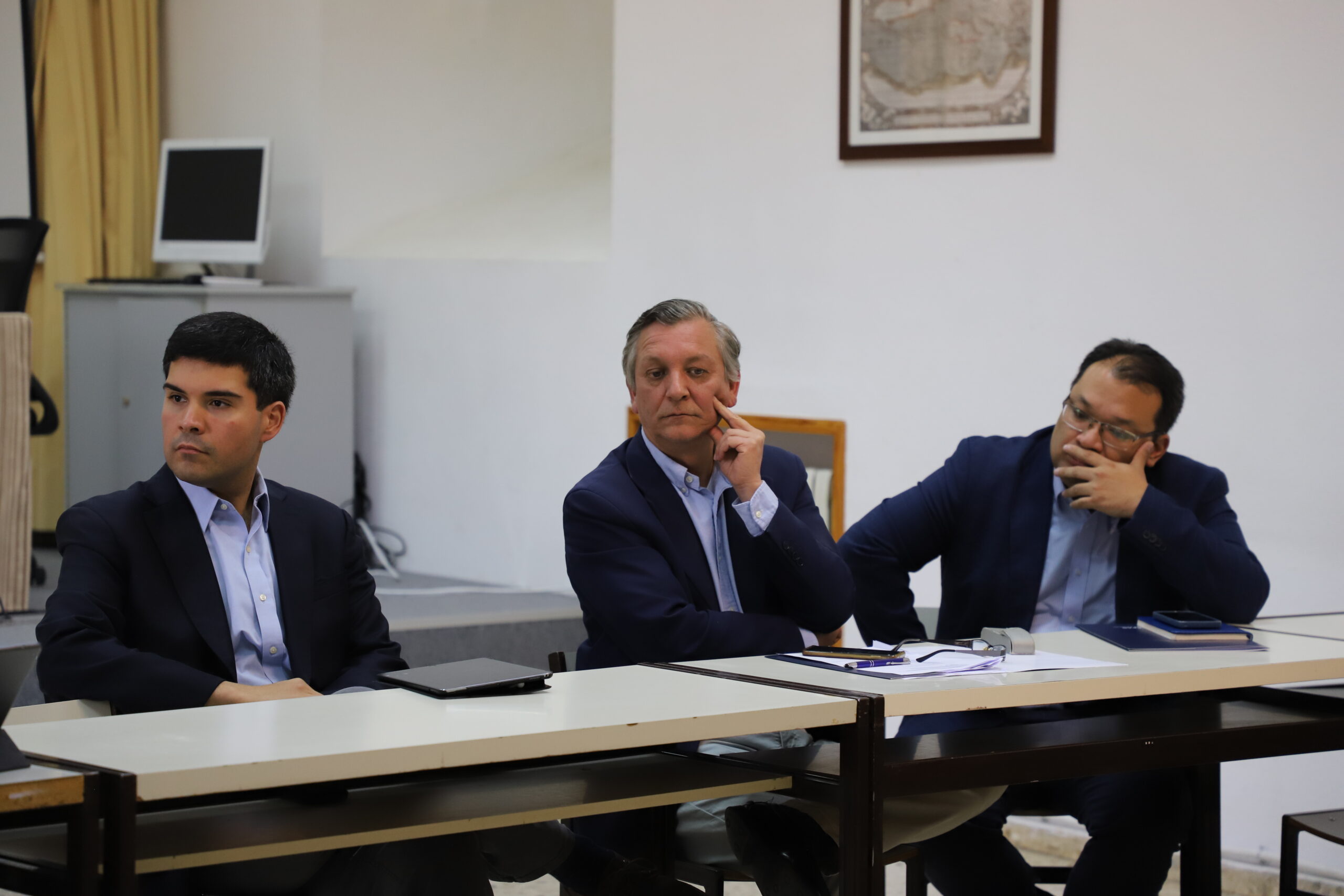
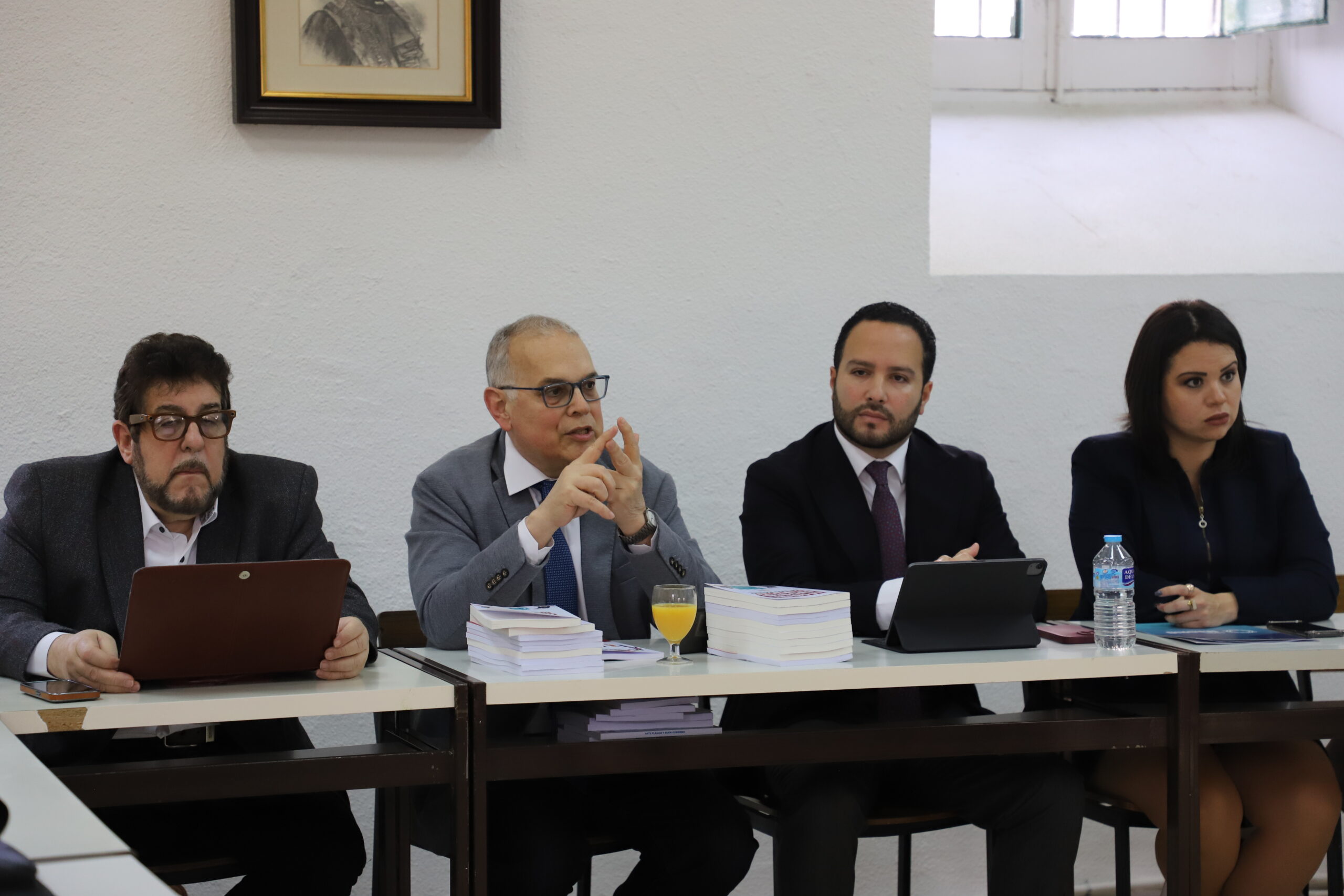
The second working group was made up of Diego Sepúlveda, lawyer, university professor and advisor to Ideas Republicanas (Chile); Maibort Petit, researcher and political scientist (Venezuela); and Julio Isamit, deputy director of Contents of Res Publica (Chile). “G8 vs BRICS: towards a new bipolar world”, they addressed the new world context which they define as “a world in transition towards multipolarity” where the great powers are trying to force small countries to choose sides and this is “a threat to our way of living”.
The panel also discussed the creation of virtual currencies by these countries, a currency that is difficult to insert due to the strong backing and confidence that the dollar has in the markets. Faced with this situation, the speakers assured that the only solution is “to be united and build alliances against this new context”.
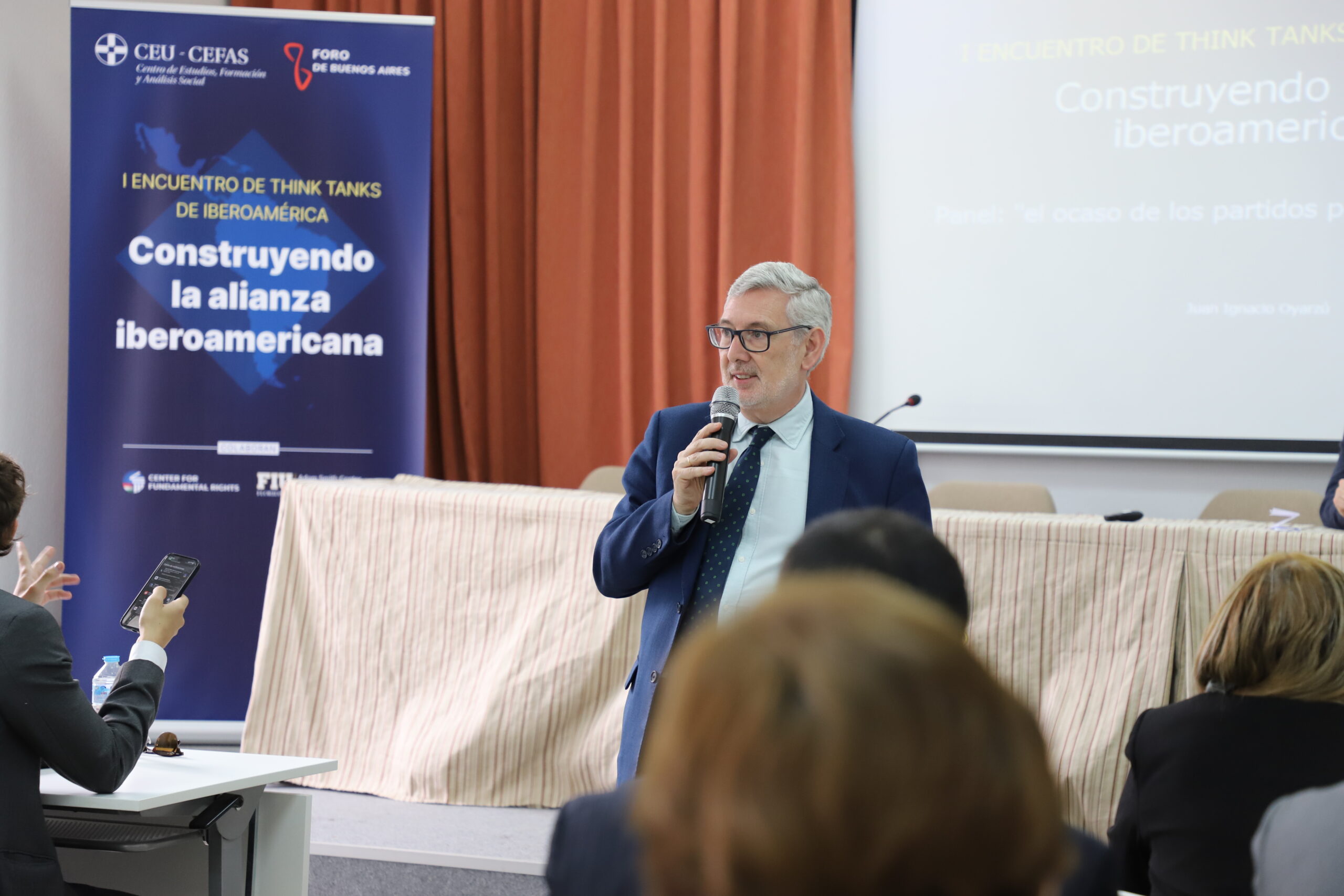
The director of CEU-CEFAS, Elio A. Gallego, took part in this meeting and shared the compromise of CEU-CEFAS with all the institutions presents in the event that share the same traditions. He also said that “the future of our countries, our history and our civilization depends on defense of truth” and about God”.
The decline of traditional political parties
The next presentation, entitled “The decline of traditional political parties”, by the president of Juventud PRO (Ensenada-Argentina), Ignacio Oyarzú, proposed a new way of differentiating political parties: nationalist and globalist. He stated that the parties are being forced to change their social and political configuration in order to survive. In the same way, the secretary general of Avanza País (Peru), Luis Flores, pointed out the loss of confidence in traditionals parties and he defended the need to restore the confidence of citizens through the professionalization of the political career.
The Director of Studies of Patria Unida (Venezuela), Gustavo Garduño, underlined the institutional crisis that exists in society: “we are facing a society that is resigned to populism” and stressed the need for civil society to promote civic participation.
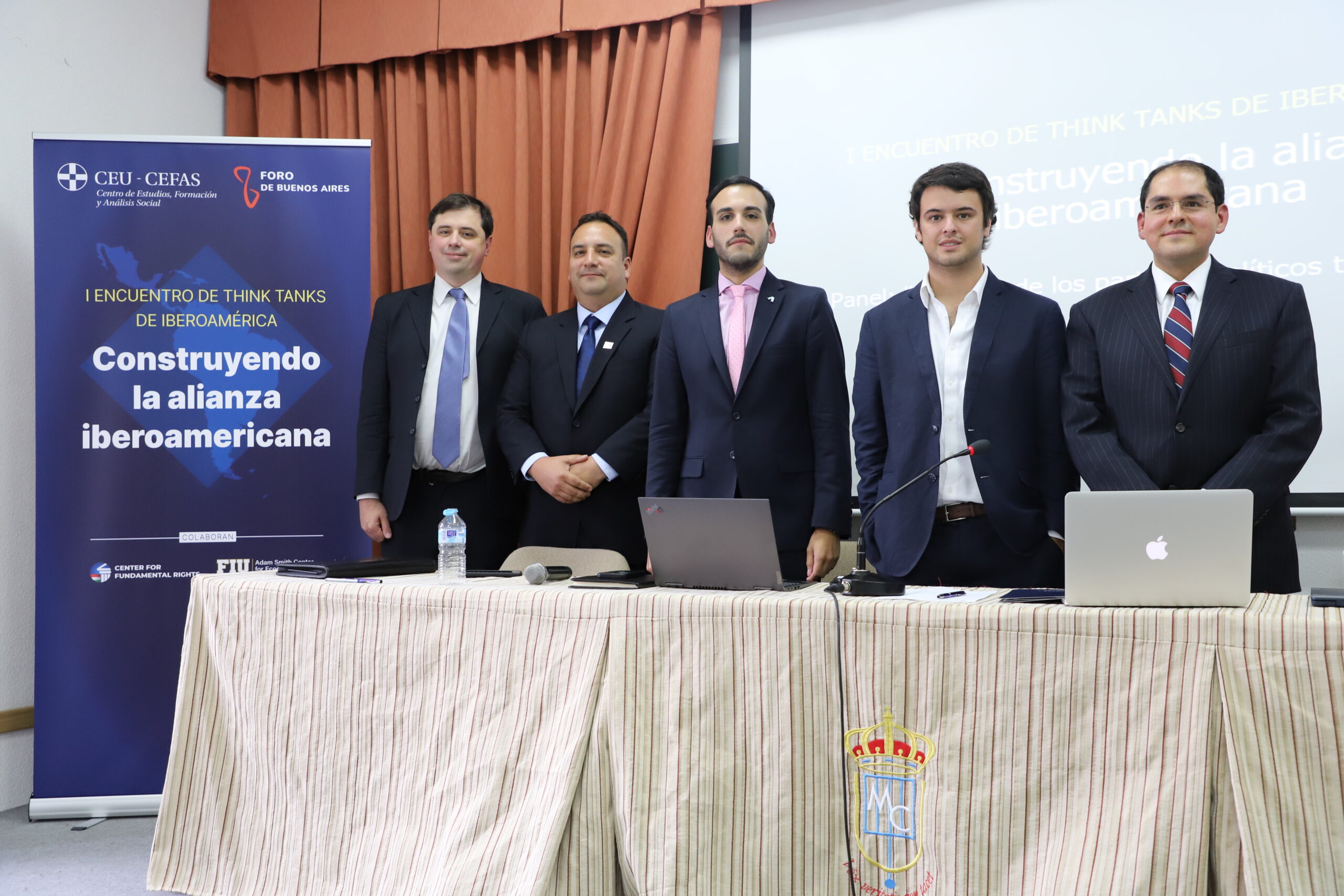
Eduardo Cretton, in charge of the electoral department of the UDI and former Constitutional Convention member (Chile), pointed out that we are facing a crisis of liberal representative democracy, but that the classic political parties are essential for the proper functioning of democracy. Cretton also stressed the idea of the lack of confidence of citizens in the role that political parties claim and “the concentration of power they represent”.
Finally, he assured that he does not believe “that there is a decline of the traditional political parties, but of the political representativeness” and encouraged to strengthen the classical parties and the classical political tradition. “Unity, building bridges and coalition is necessary to beat the left”, he concluded.
The Latinoamerican economy and the case of Hungary
The working groups then dealt with the Latinoamerican economy with the participation of the MEP for Fidesz (Hungary), Enikö Györi; the economist and businessman (Spain), José Ramón Riera; and the senior coordinator for the Iberosphere of the Center for Fundamental Rights (Hungary), Jorge González-Gallarza. During this session, emphasis was placed on the great presence that China has in latinoamerica where the region has neglected its resources: “the poor performence of the latinoamerican economies is due to the mismanagement of left-wing governments”. Faced with this reality, xxxx proposed to strengthen trade and liberal economic policies that create jobs, wealth and better living conditions.
The other working group: “Hungary, an inspiring case” included the director of the Madrid office of the Center for Fundamental Rights (Hungary), Vajk Farkas; the director of the Center for European Studies of the Mathias Corvinus Collegium (Hungary), Rodrigo Ballester; and the collaborator of the Center for Fundamental Rights (Hungary), Ana Bolio. The speakers highlighted the success of this country due to the anthropological vision and the defense of cristian values. In addition, they pointed out that freedom is understood as the most important value of the citizen and national sovereignty is a priority: “all actions are based on the defense of the national interest”.
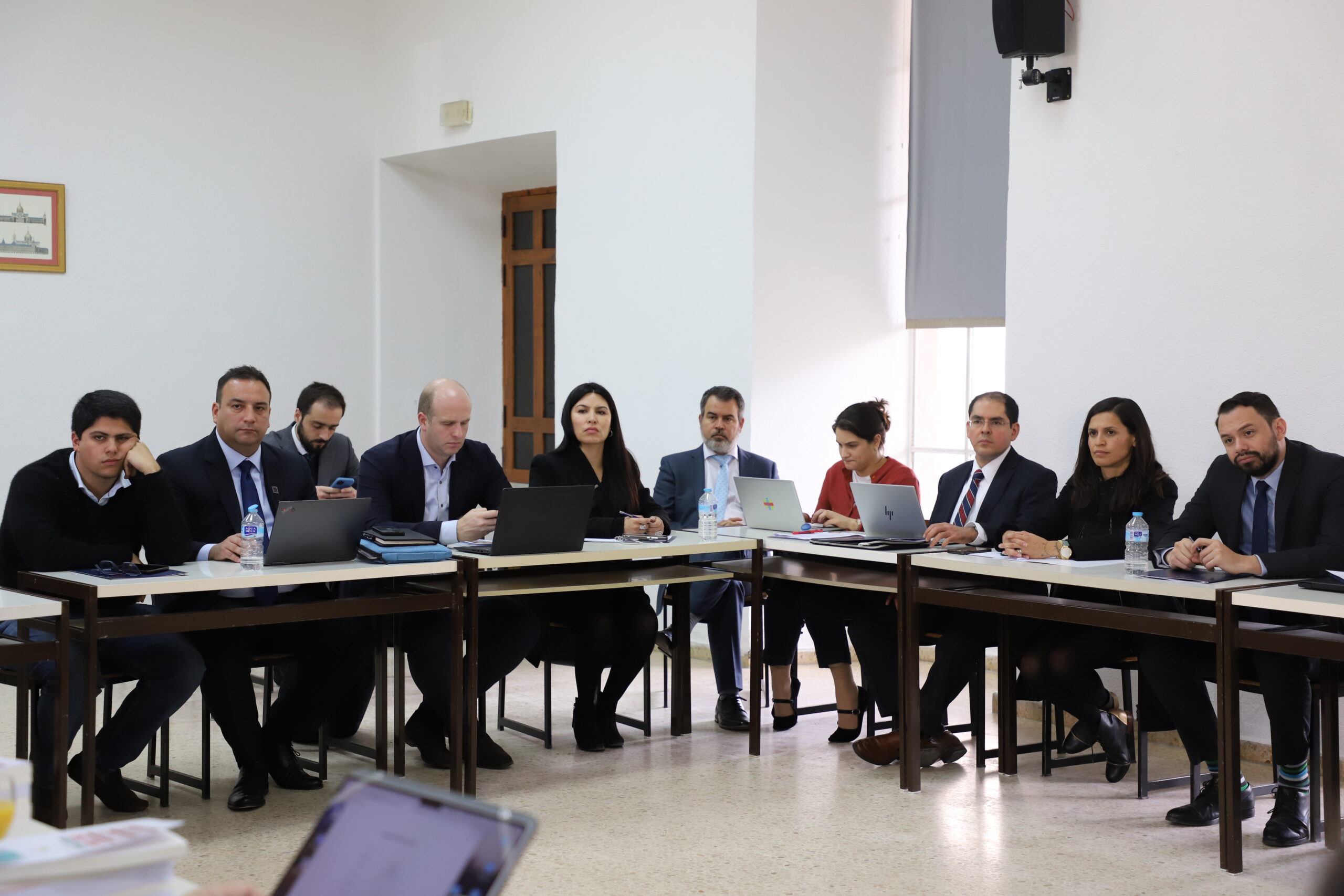
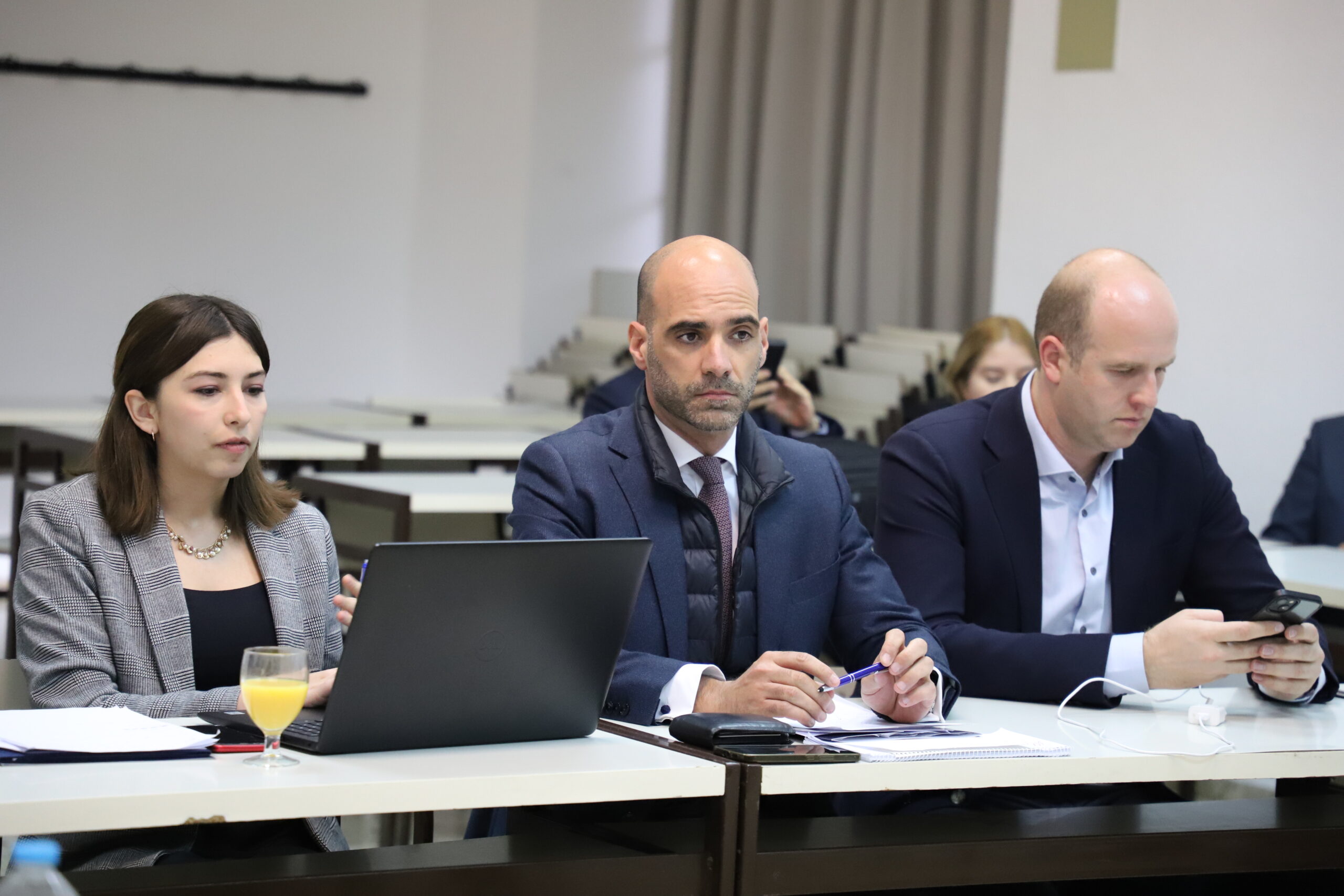
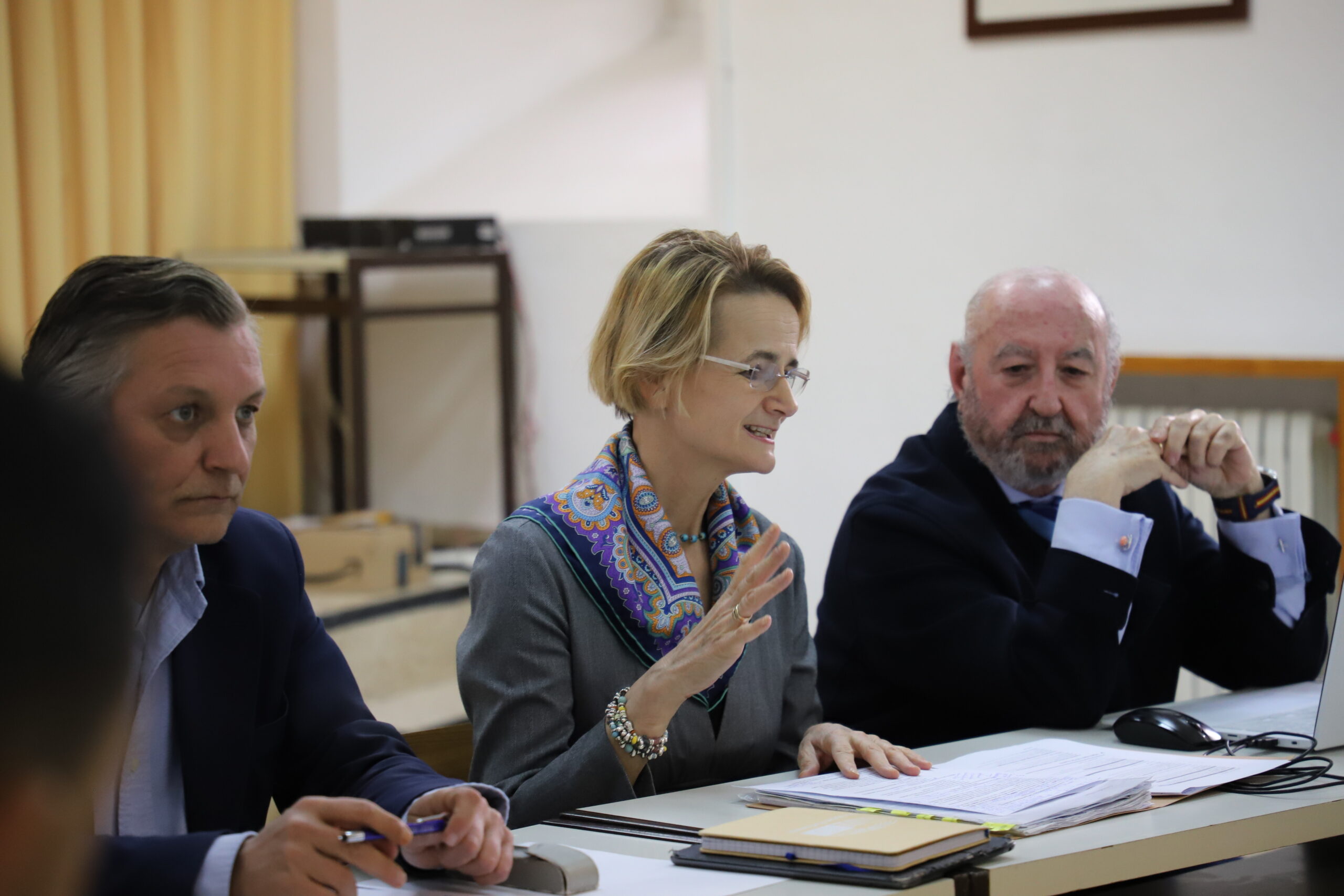
Cultural proposals to face of the dominant progressive hegemony
The second day of the congress began with the round table “Cultural proposals against the dominant progressive hegemony”, in which the head of Studies and Training of the Disenso Foundation (Spain), Ricardo Ruiz de la Serna, emphasized the importance of satisfying the anthropological needs not covered by progressivism, promoting an alternative modus vivendi and a change of the media discourse.
For his part, the executive director of Origen (Peru), Sebastián Blanco, has proposed different strategies to confront the influence of the Woke culture, advocating training and analysis programs, as well as the promotion of alternatives that preserve national identity and traditional values.
The journalist and political analyst (United States), Wadi Gaitan highlighting the power of narratives and the need to partner with content creators to promote an alternative vision to the Woke political agenda.
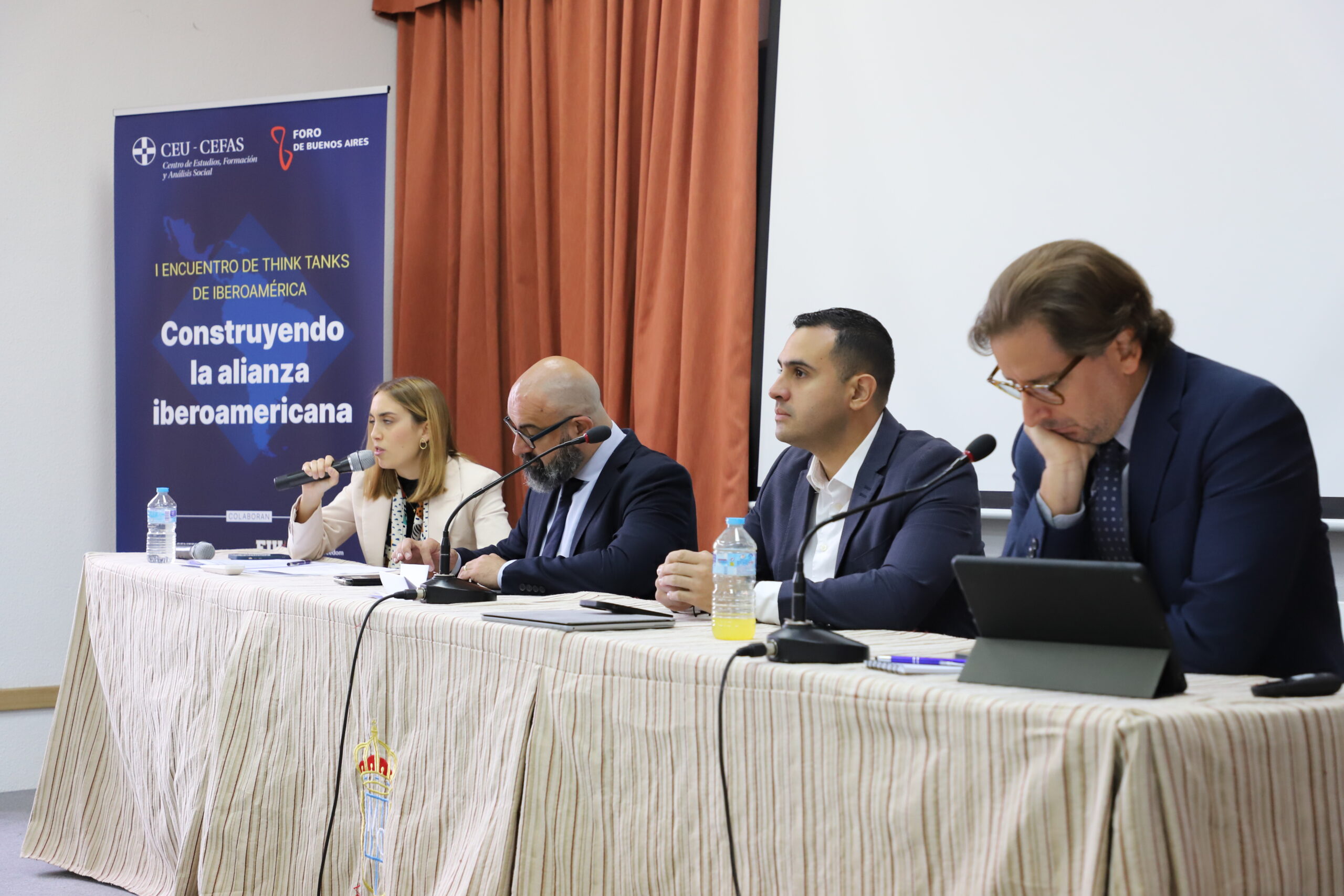
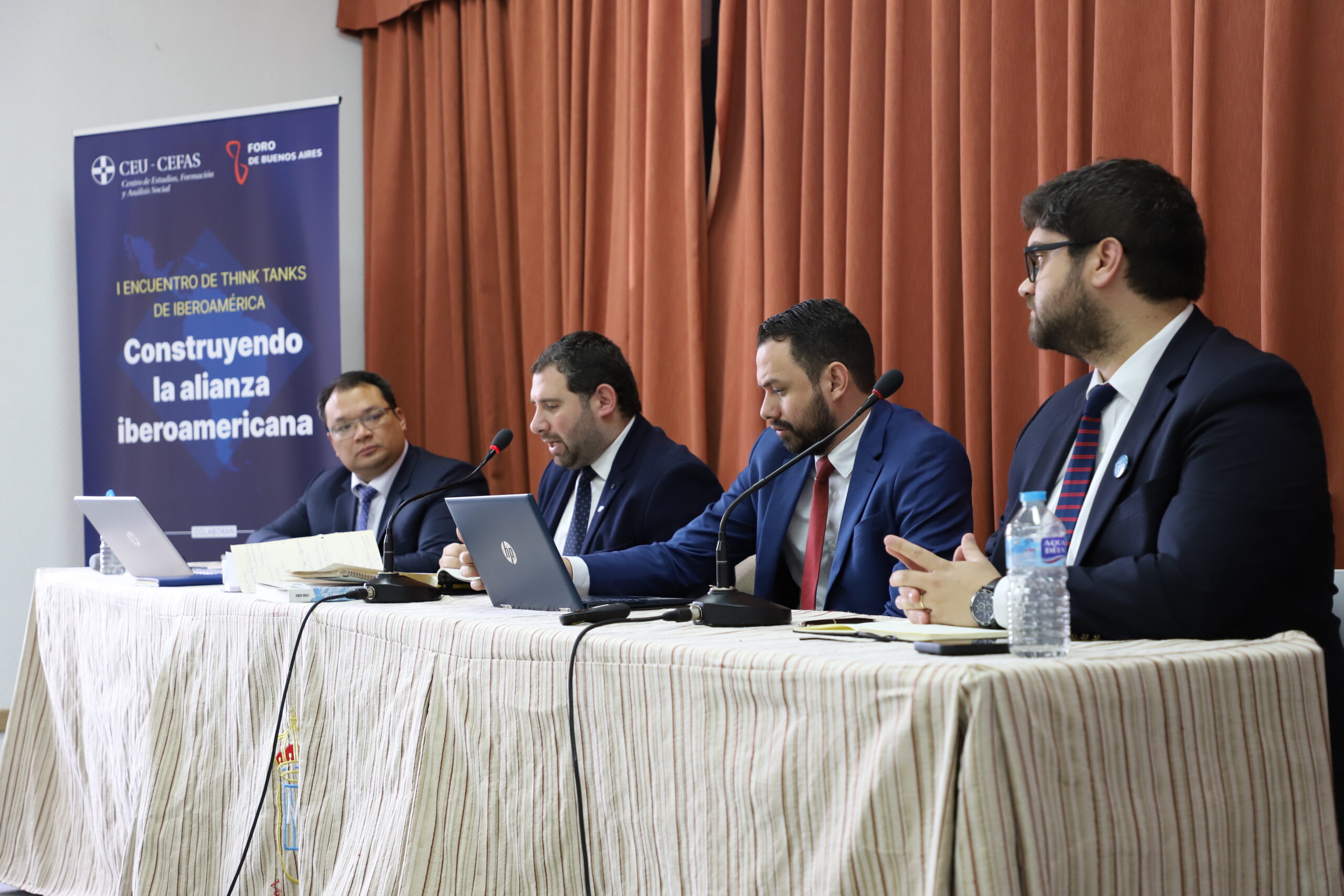
In the second round table entitled “The Need for a Joint Political Strategy in the Region”, the general coordinator of the Forum of Buenos Aires (Argentina), Enzo di Fabio, emphasized self-criticism as a starting point, identifying the internal faults that weaken the right. In this sense, he stressed the need for a solid formation and a political strategy that defends the common good and freedom, emphasizing the importance of thinking strategically and creating alliances based on common interests.
The executive director of Res Publica de Chile, José Francisco Lagos, highlighted the importance of a regional vision and strategy in the face of the challenges, proposing agreements that establish common rules of the game beyond political differences.
Finally, the Secretary of International Relations of the National Party (Honduras), Frank Alley, pointed out three key elements for the creation of common strategies: training in ideas, effective communication and international collaboration.
Environment and diffusion of ideas
The working groups of this second day dealt with the environment and transmition of ideas in public life. In the first panel, entitled “New proposal for the conservation of the environment”, the CEU-CEFAS collaborator in Ibero-America (Peru), Gustavo Nakamura; the doctor in Energy Engineering, Rafael Díaz-Guardamino; and the coordinator of Derecho y Libertad (Spain), Emilio Esteban-Hanza, spoke about the relationship between the left and environmental conservation, the efficiency of nuclear energy and the need to create a conservative perspective in environmental policy.
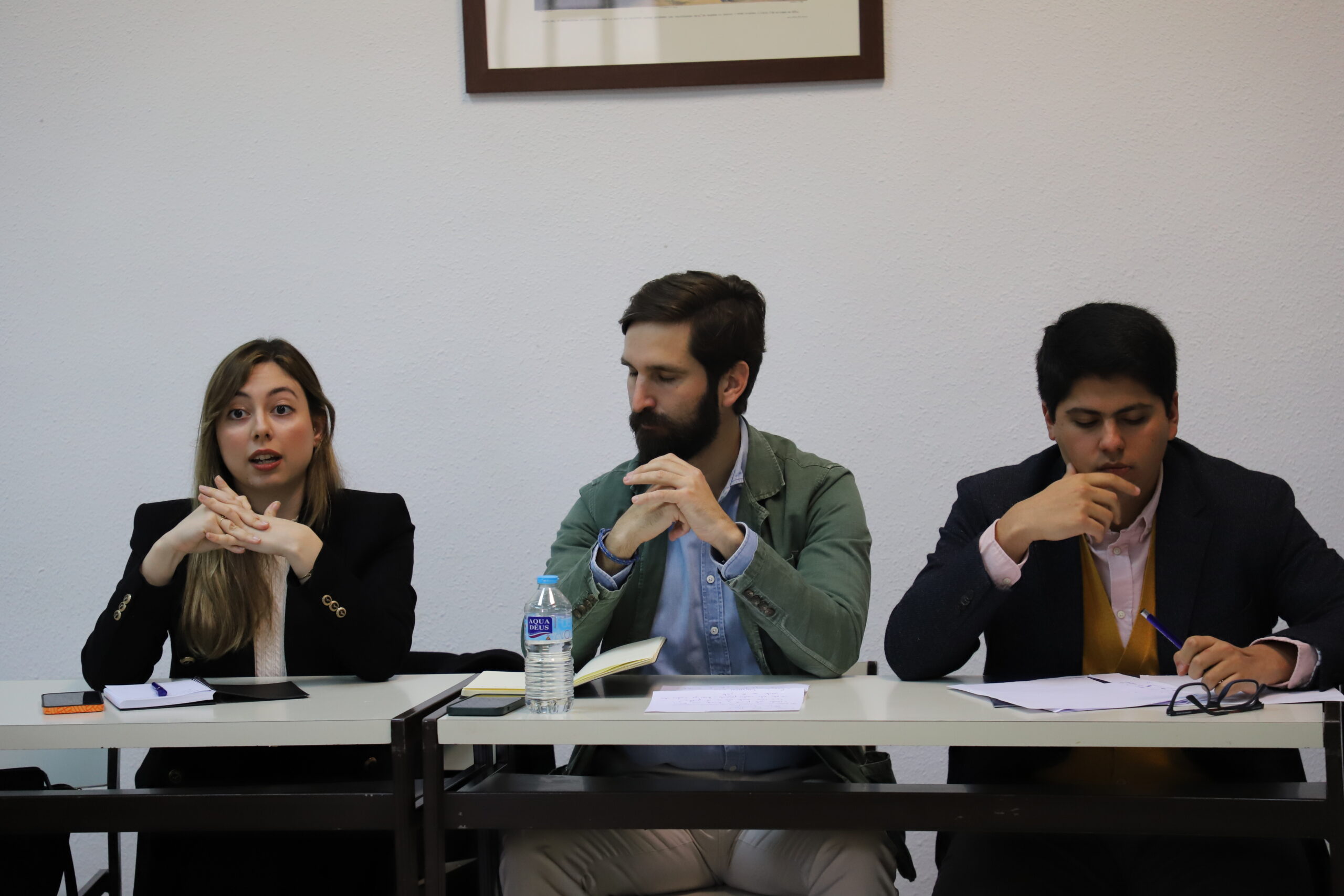
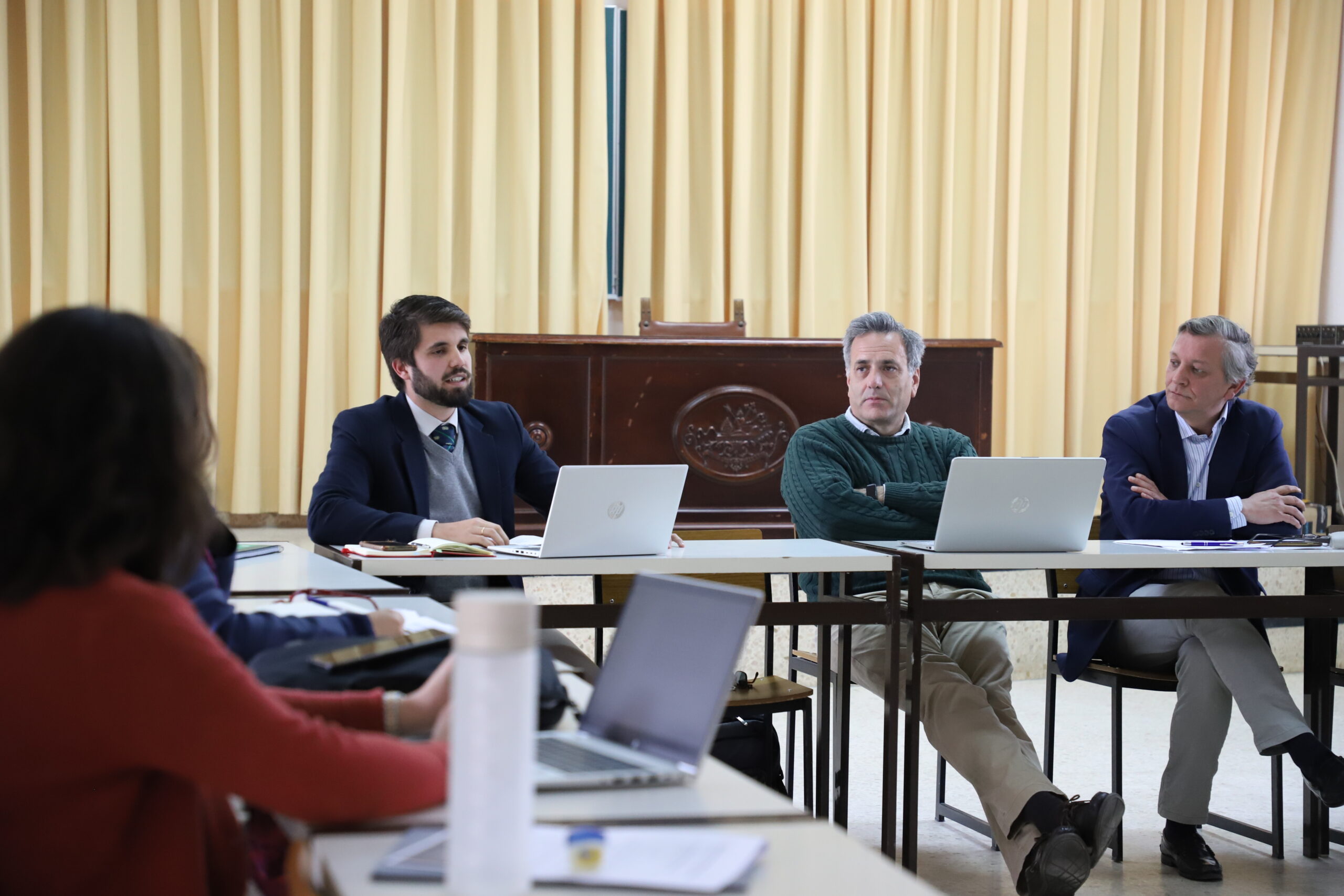
Simultaneously, in the round table “Transmition of ideas and influence in public life”, the journalist and head of Communications of El Club de los 350 (Spain), Yilian Ayala; the director of Centinela (Spain), Rodrigo Gómez, and the director of El Reporte (Peru), Santiago Carranza. They enphasized the importance of a clear and adaptive strategy in the communication of conservative ideas. In order to counteract dominant narrative of the left was highlighted.
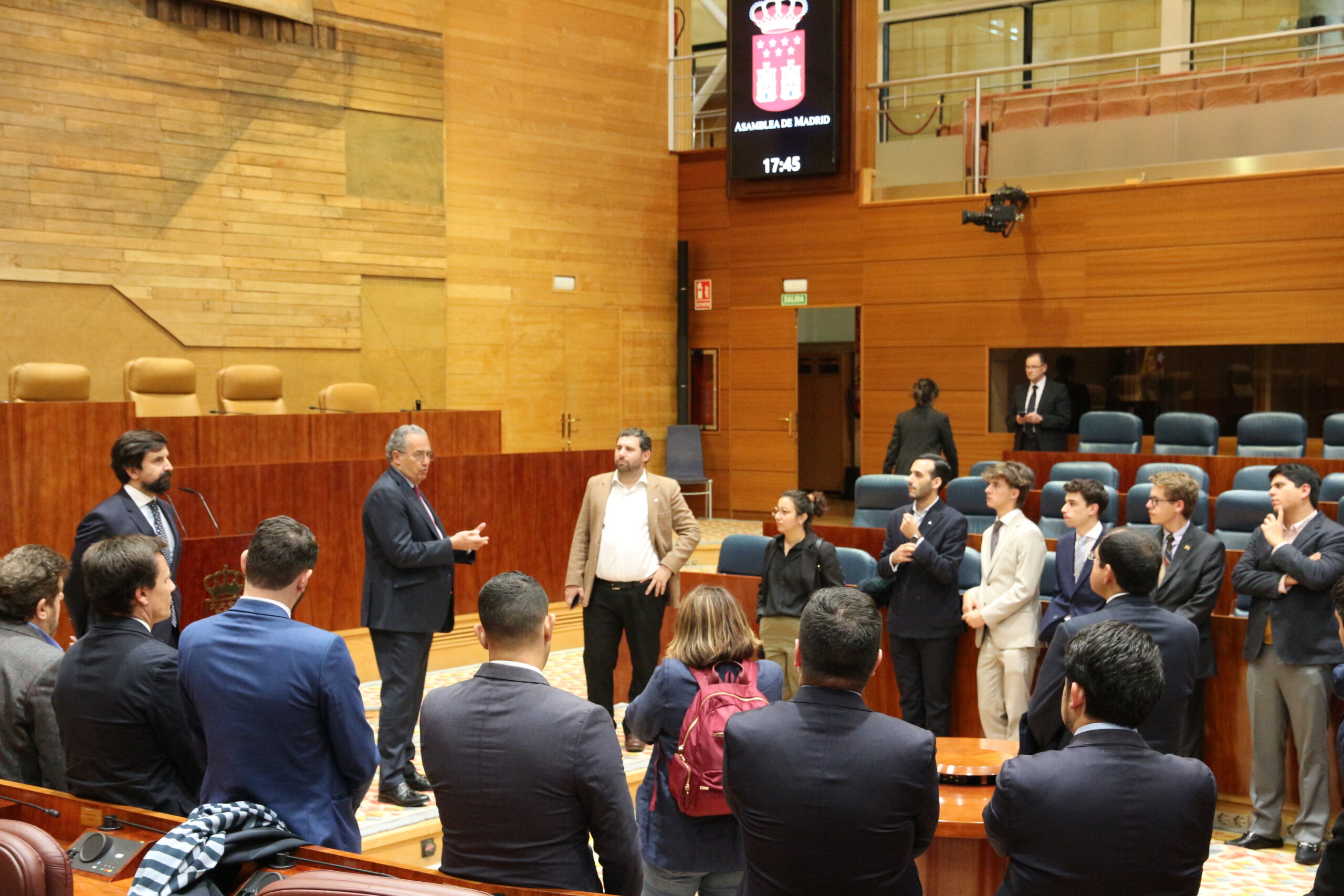
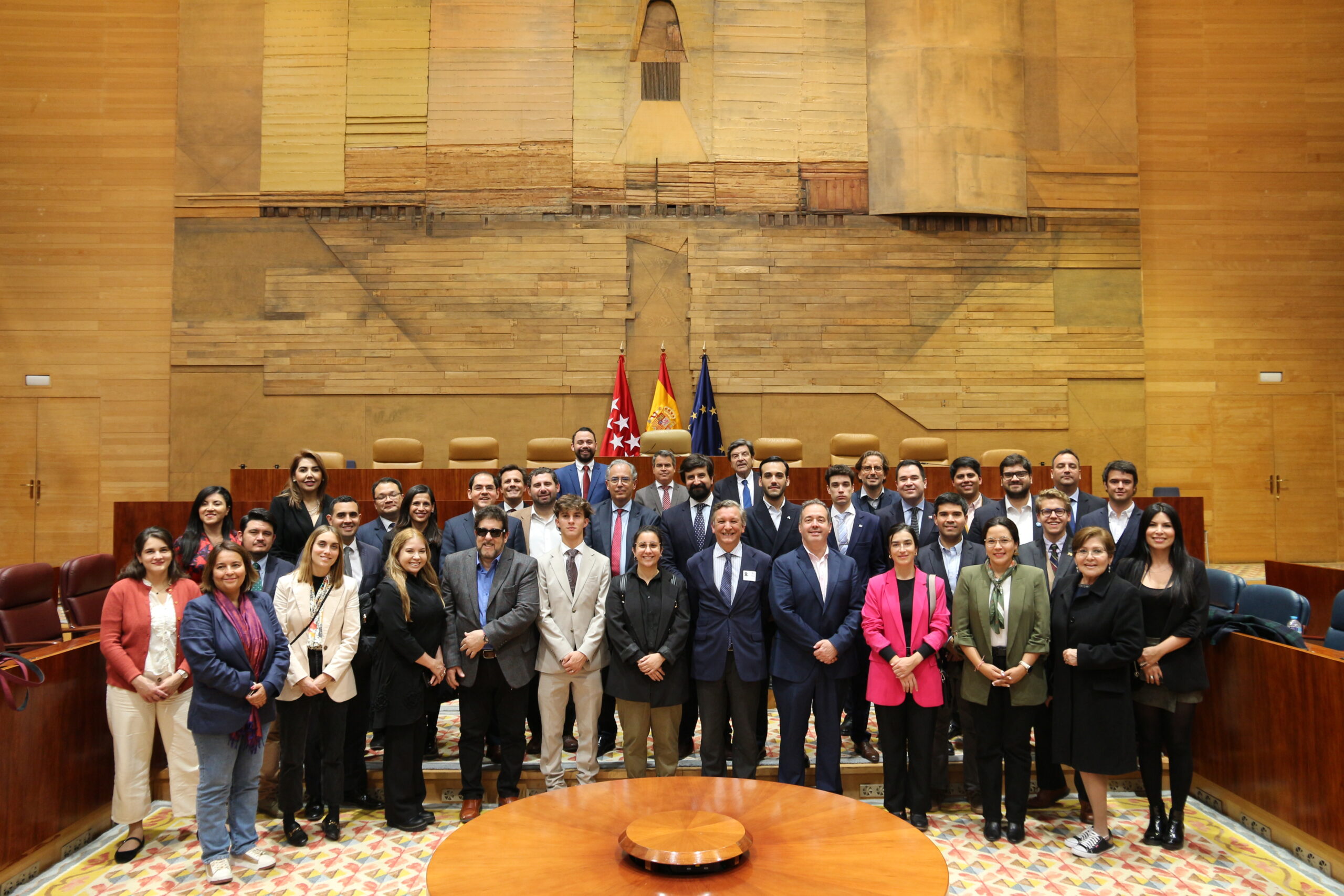
Wednesday ended with a visit to the Assembly of Madrid where we were received by its president, Enrique Ossorio, and the memeber of the assembly of the Popular Party, Rafael Núñez Huesca.
The closing ceremony had as speaker, Pepa Millán, spokesperson of VOX in the Congress of Deputies. Who analyzed the current political context and stressed the importance of training young people in principles and values. Regarding her political commitment, Millán assured that “we have to defend what we believe in” and she assured that “our political system has to be defended not only by political parties but also by civil society”.
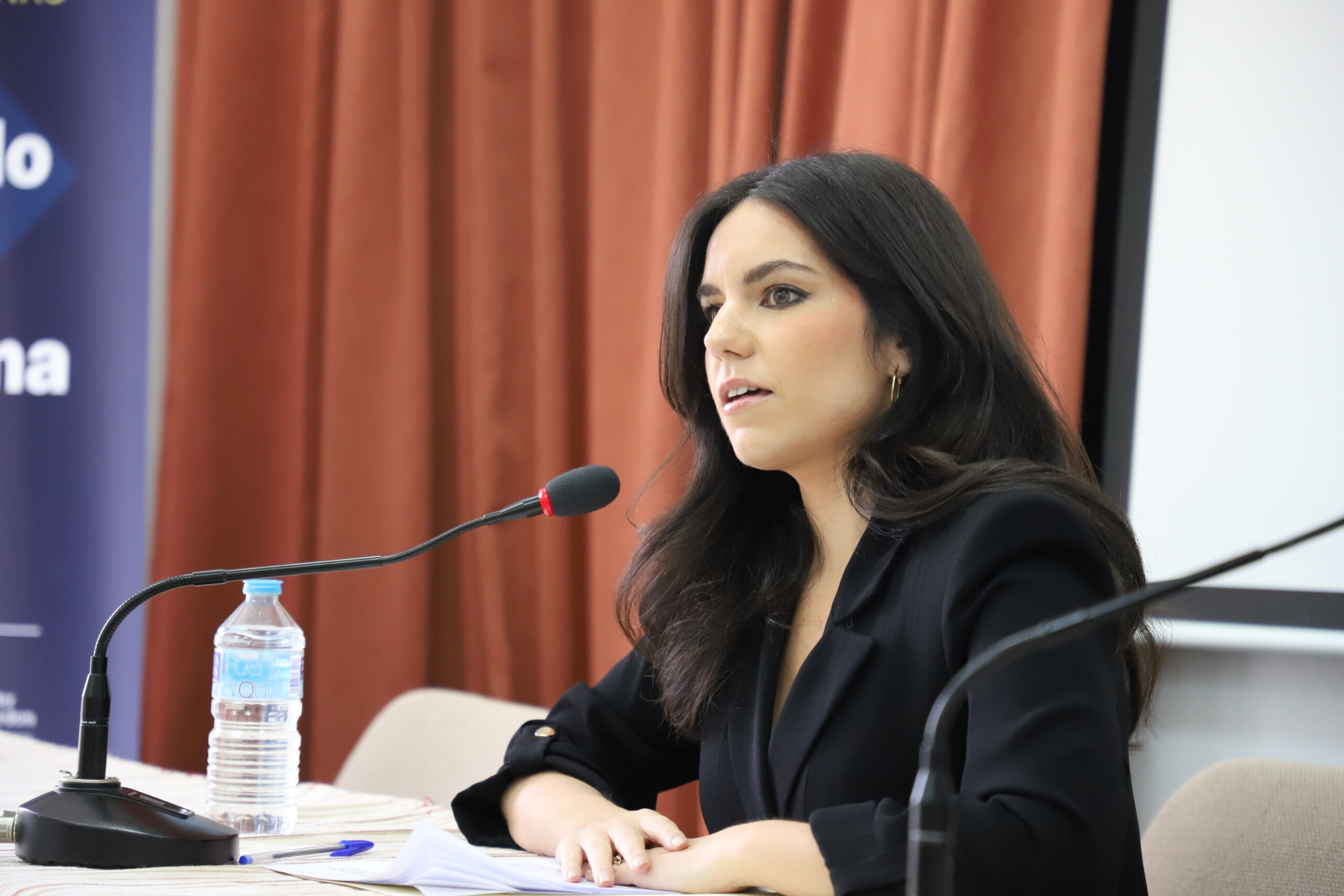
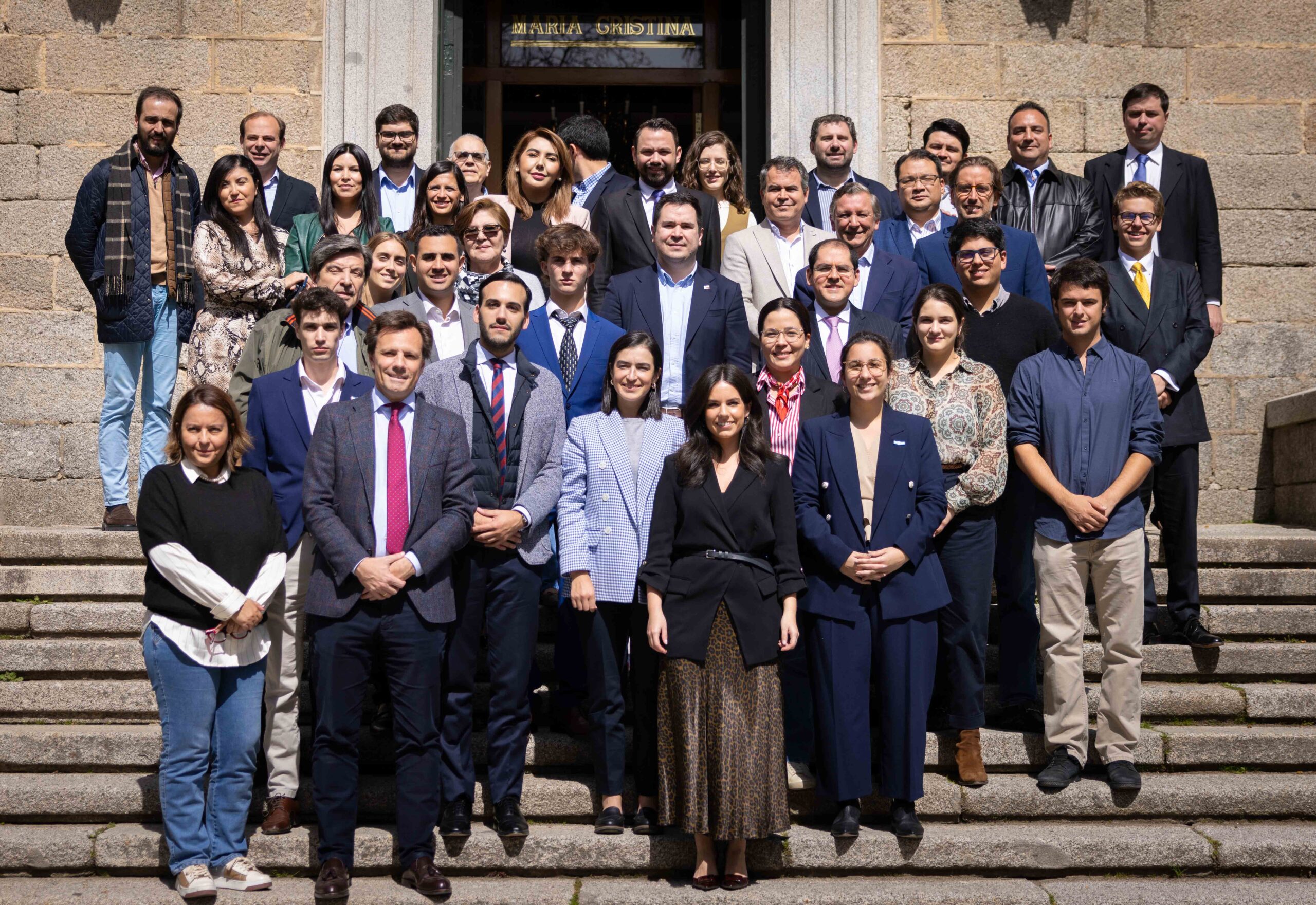
RELATED
Recuperamos el pensamiento de Jaime Balmes
Celebramos la jornada “Una visión actual del pensamiento de Jaime Balmes” para conmemorar la figura del filósofo cristiano.
Eugenio Nasarre, un hombre comprometido con la educación y la libertad
Celebramos el acto homenaje al intelectual, político y consejero Nacional de la ACdP, Eugenio Nasarre, fallecido el pasado mes de enero.
